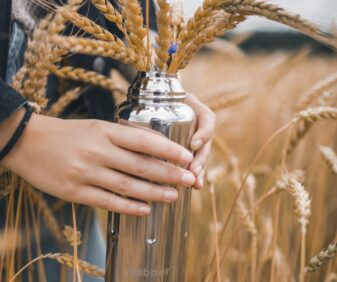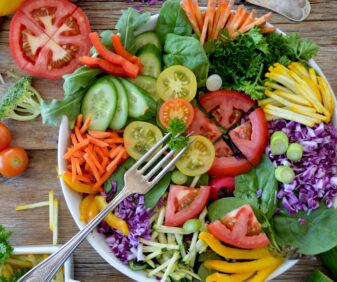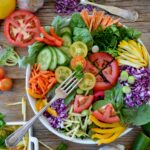


The healthiest diet for each of us is the one that includes 5 portions of fruit and vegetables. They are a valuable source of vitamins, minerals, organic acids, protein, fibre, pectin and starch. They protect our body from carcinogenic free radicals, regulate the digestive system and …
The healthiest diet for each of us is the one which includes 5 portions of fruit and vegetables. They are a valuable source of vitamins, minerals, organic acids, protein, fibre, pectin and starch. They protect our body from carcinogenic free radicals, regulate the work of the digestive system and metabolism, maintain the acid-base balance, support the heart and cardiovascular system, have a bactericidal and fungicidal effect. However, in order to be able to use their full potential, we should deal with them properly. Here are some tips and advice that will help us to do this:
HOW, HOW MUCH AND WHERE TO BUY THEM?
Best of all, fresh, in small quantities – as many as we need, choosing local suppliers so that they reach us from the fields and gardens in the shortest possible time. Let’s buy the firmest ones, with dense flowers, green leaves, shoots and smooth and shiny skin.
HOW DO WE MAINTAIN THEIR COLOURFUL FIRMNESS AND NUTRITIONAL VALUE?
Let’s not store fruit or vegetables for too long because light and temperature destroy the compounds and vitamins they contain and can also be a source of bacterial and fungal infections. They should always be unpacked from the film in which they were bought and fresh air should be provided.
DO YOU HAVE TO WASH AND PEEL THEM?
All fruit and vegetables, without exception, must be washed before consumption, but not all of them immediately after they are brought home. Blueberries (strawberries, raspberries, blueberries, strawberries) will spoil faster when washed, it is worth storing them with stalks as well. Citruses tolerate washing better, but they need to be dried thoroughly. We also wash vegetables and fruit in skins. Let us pay the greatest attention to novelties, which often contain a large dose of fertilisers to help them ripen quickly. Rinsing alone is not enough here – our purchase must be thoroughly soaked and left for about half an hour. The water can be replaced during this time. Since most vitamins are under the skin, it is much better to eat them than throw them away. Apples, courgettes, carrots, aubergines, parsley and young potatoes can only be washed under warm water and eaten without peeling. Only cut with a steel knife and for deciduous species it is much better to tear them off.
WHICH VEGETABLES AND FRUIT SHOULD BE KEPT IN THE FRIDGE?
First of all, we hide all those that are already wet, peeled, cut (salads and salads). Vegetables: carrots, broccoli, celery, peppers, Brussels sprouts, corn, leek, courgette, asparagus, cauliflower, radish, lettuce, chives and spring onions. Fruit: apples, plums, grapes, cherries, cherries, raspberries, strawberries, berries, blueberries, blackberries. They should be placed in the lower drawer of the fridge, where the temperature is optimal for them, taking care to keep them separately. Green vegetables (broccoli, cucumbers, lettuce) should not be in one place with fruits and vegetables that emit ethylene (peppers, tomatoes, pears, apples, as this will make them yellow. Nor should we mix some vegetables and fruit (e.g. carrots stored with apples, pears or potatoes will be bitter). The place where we store our supplies should be covered with paper towels which will absorb the excess moisture and keep them fresh for longer. Do not keep fruit and vegetables in additional containers, because the condensation of water vapour in them causes the development of fungi and rotting of products.
STORAGE OUTSIDE THE FRIDGE
Some fruit and vegetables in particular do not like moisture. These include exotic fruits, whose flesh is best stored at temperatures above 16ºC. Place bananas, lemons, oranges, mangoes, avocados and pineapples on a window sill on platters. Immature avocados or bananas will ripen faster if you put them in a paper bag with an apple – the ethylene released from it will accelerate this process. Keep potatoes, onions and garlic in airy baskets in a cool and dark place. Here is another trick with the apple – placed together with the potatoes will protect them from quick spoilage.
If we have more vegetables and know that we will not be able to eat them at the same time, we can make them into preserves, silages, juices, dry them or store them hermetically as frozen food.








